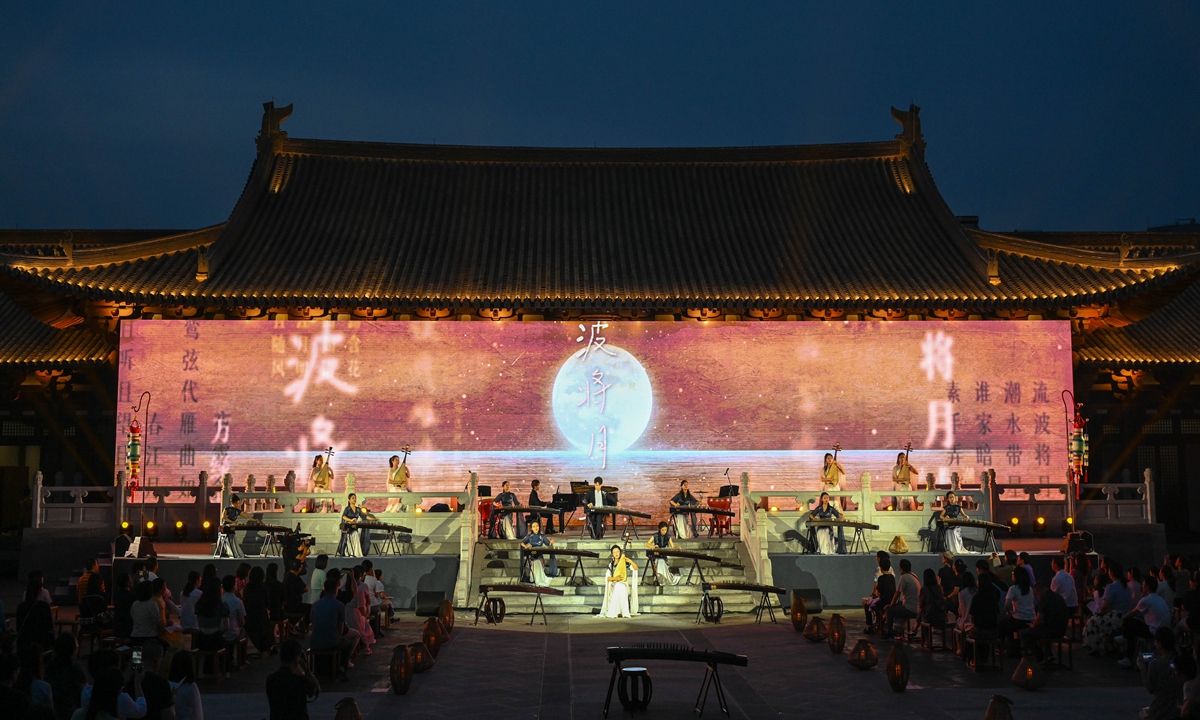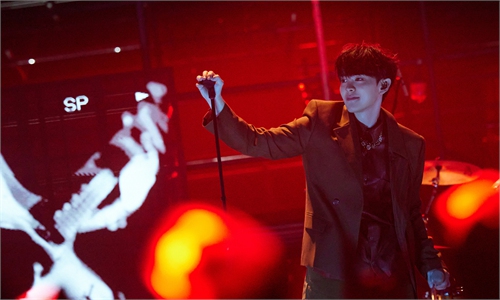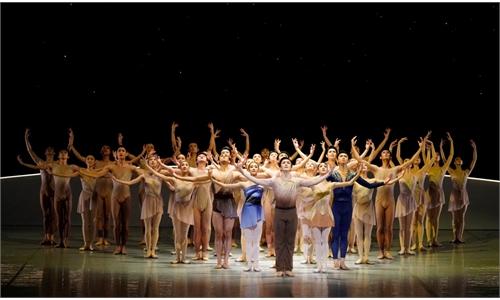ARTS / CULTURE & LEISURE
Exclusive with singer Liu Huan: Safeguarding originality in AI era, building C-pop’s global position
Music with creativity

Liu Huan Photo: Courtesy of Liu Huan
From The Ambitious Youth Never Speaks of Sorrow and Heroes' Song to You and Me and The Path of Humanity, Chinese singer-musician Liu Huan's voice has resonated since the 1980s, making him a household name in China.
In an exclusive interview with the Global Times, he reflected on his musical career, shared his philosophy, discussed his views on artificial intelligence (AI), and expressed his hopes for young musicians and the future of Chinese original music.
Out of passion
Liu is not only a pioneer in Chinese pop music but also a trailblazer in blending Chinese cultural elements with Western techniques, as seen in the Empresses in the Palace soundtrack and The Wandering Earth theme song. This fusion has carved a global path for "Chinese-style" music. When asked about his favorite work, Liu responded calmly: "Once I finish writing, I move on. I rarely revisit my own songs." This reflects his pure approach to creation: Music stems from passion, not attachment to outcomes.
Reflecting on his career, the singer avoids defining specific "highs" or "lows." "High points are often how others perceive my work. I've been fortunate in my musical journey - it never felt like a struggle," he told the Global Times. As a mentor on music reality shows, he is often moved by the music itself.
"I make music out of passion. No matter how much effort it takes, I'm willing to do it. If it ever felt like a burden, I'd have given up long ago." Recalling his performance of You and Me with British singer Sarah Brightman at the Beijing 2008 Olympics opening ceremony, which was aired worldwide, he noted, "To me, it was just a performance on a massive global stage. My musical philosophy was already set."
As for AI technology permeates music creation, Liu expressed curiosity and openness. "It's a new field, and I'm learning about it. The music industry has mixed reactions, but AI enables people with no technical knowledge to produce finished songs."
Having explored AI-generated music, he said, "I've heard some AI works -decent ones, I assume. They're acceptable but not remarkable." He characterized AI-written Dream of the Red Chamber as being "passable but not great," adding, "Not being impressive now doesn't mean it won't be in the future. AI, trained by humans, could come close to human creativity. Its learning capacity is immense, and given time, it may rival our creative potential."

Musicians perform a Chinese-style concert in Hangzhou, East China's Zhejiang Province. Photo: VCG
Championing original work
To inspire young talent, in 2019, Liu launched the Liu Huan's Foundation of Original Music, sparked by his experience on a variety show. "The goal is simple: To support original Chinese music," he said.
The fund's slogan - "Originality with Strength, Music with Attitude, Sound with Diversity" - reflects his vision for a multifaceted musical landscape. Liu emphasized, "Diversity means music must vary. People often praise a song for its lyrics, but at its core, a song is a musical form, not a literary one."
He believes music itself must take center stage. "Chinese characters are expressive, so lyrics often overshadow melody. Many popular songs have simple rhythms and melodies. If we don't address this, music won't progress."
He sees singer-songwriters as the backbone of original music and a global trend. The foundation focuses on musicians under 30, particularly singer-songwriters, selecting three finalists through a voting process. Liu then evaluates their work for diversity and awards 1 million yuan ($136,869) for creation and production. Over six years, the fund has supported six artists.
In January 2025, 25-year-old Pu Ashan won for her fusion of electronic and ethnic styles. She vowed to draw from traditional and ethnic music to create confident, unique, and relatable works.
"The foundation is just a small step, and my modest contribution to a field I love," Liu said. Acknowledging the dilemma young musicians face - chasing trends or struggling financially - he admitted the fund can't fully change the landscape but hopes it will help amplify original music's voice. On the impact of short-form video platforms fragmenting music's depth, he expressed concern: "Globally, every country with a thriving pop culture faces this issue." Yet he also remains optimistic, stating, "Great work will always emerge. It's up to us."
Chinese style
Liu admires the personalized blends of ethnic culture and global influences of young musicians.
"They're open-minded, with the internet exposing them to global music. Their individuality is unbound. When they focus on ethnic culture, they do so from a global perspective, with authentic, self-driven expression."
He highlighted emerging genres like guofeng or Chinese style music, which showcases Chinese cultural allure. Liu envisions a future in which "Chinese pop music (C-pop) secures a prominent place in global mainstream music."




